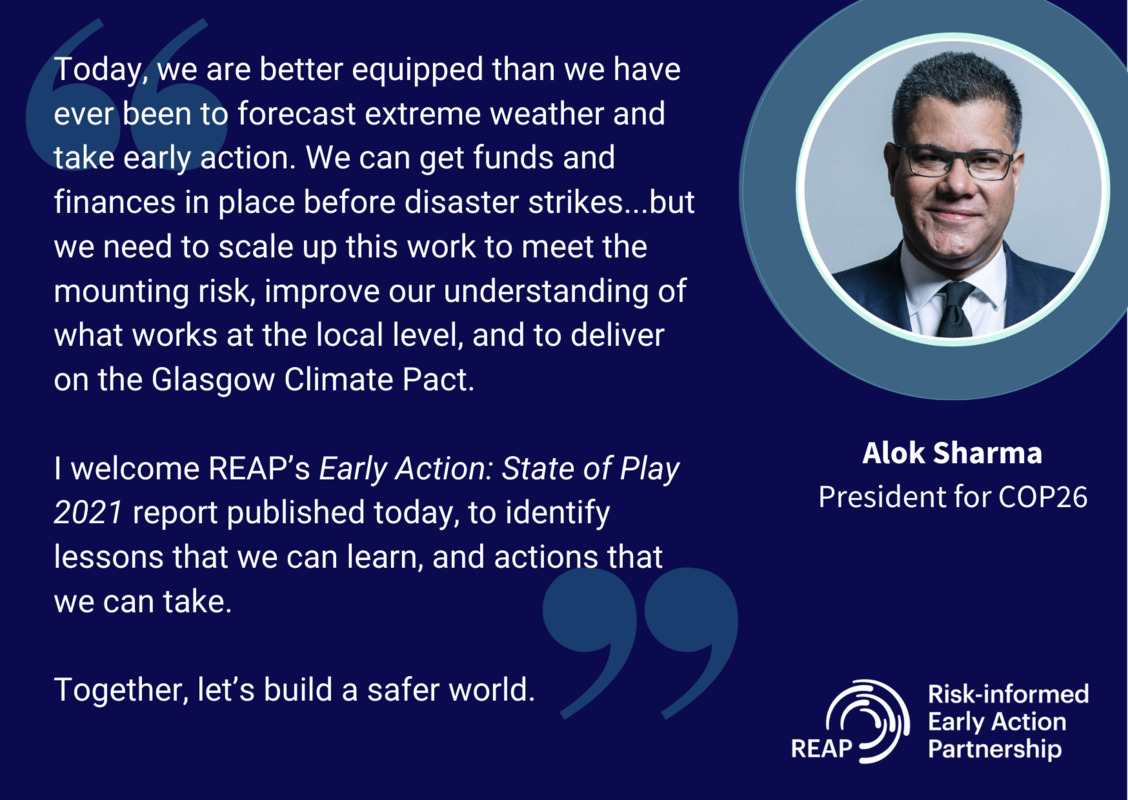Categories
The 'Early Action: The State of Play 2021' report is launched today
The world is facing an unprecedented climate crisis. The number of people in need of humanitarian assistance due to climate-related disasters could double by 2050 to 200 million a year. And the IPCC's recent report is a fierce indictment of our failure to take sufficient action.
But there is hope. Today, we are better equipped than we have ever been to forecast extreme weather and take early action. We can get funds in place - and take action - before disaster strikes. Early warning and early action initiatives that make people safer from disaster are being implemented across the globe.
Now, more work needs to be done to spotlight the lessons we have learned about what works, what doesn’t, and what is still needed to take early action to the scale demanded by the increasing impacts of climate change. That is the aim of the Risk-informed Early Action Partnership’s inaugural Early Action: The State of Play 2021 report.

Launched at MENA Climate Week, the report provides a snapshot of early warning early action commitment, investment and activity over the previous year. It gives decision-makers top-line analysis that identifies gaps and opportunities in the delivery of early action, and supports the broader goal of a systemic shift towards acting ahead of disasters, which is critical for effective climate action.
Due to the rapid changes in the field of early warning early action, the report looks back over the last 12 months, and the recommendations it offers are relevant for the coming 12 months. For this first report in the series, the horizon for review has been extended to cover 2020 and 2021.
The analysis and recommendations in Early Action: The State of Play 2021 are complemented by the Anticipatory Action: The Enabling Environment summary report, also available from March 2022.
Watch what the COP26 Presidency has to say about the report on this video, and find out more about the report here.
For any questions about the report, please contact Ben Webster or Emma Flaherty.

